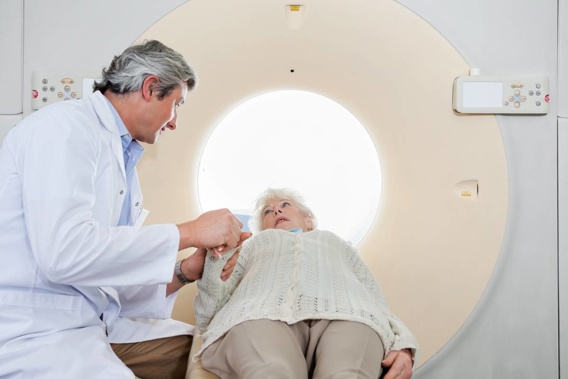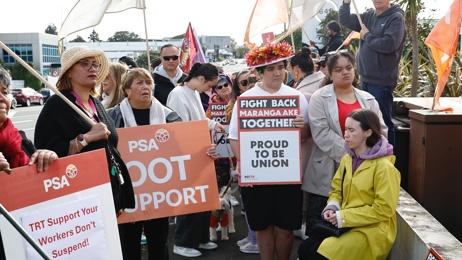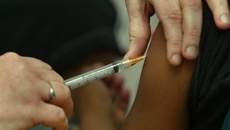
The national bowel screening programme is likely to miss about a third of cancers present in participants, screening authority University of Otago Associate Professor Brian Cox says.
His estimate follows the Ministry of Health Official Information Act release of provisional data from the Waitemata bowel screening pilot which shows 66 participants were diagnosed with cancer between programme screenings.
Eighteen of these people have since died from colorectal cancer.
The bulk of the cancers (56) and deaths (17) involved those who had returned blood/faeces tests classed as negative in the pilot's first three years.
A further 10 people who returned positive tests were found to have cancers not detected in their resulting screening colonoscopy between 2012 and 2015. One of these people has since died from colorectal cancer.
Cox, who was closely involved with the introduction of New Zealand's cervical and breast screening programmes, is an outspoken critic of the adequacy of the national bowel screening programme, saying it will miss too many cancers and make little impact on the incidence of the disease.
Repeated attempts to get an overall estimate of the proportion of cancers expected to be detected/missed in participants in the national programme have been resisted by the Ministry of Health.
No information on this is included in the material which is sent to participants or prospective participants.
/arc-anglerfish-syd-prod-nzme.s3.amazonaws.com/public/4QG5X67RKFGL5OJVRNM2KJGEMM.jpg?width=564&height=423)
Inside the human body. Bowel cancer screening checks for colorectal cancer. Photo / File
Asked why anyone should be expected to participate in a screening programme without information about its estimated likelihood of detecting any cancer, Ministry of Health director of service commissioning Jill Lane said information provided supported individuals to make an informed decision.
She refused to answer the question about an overall estimate as the information was not held by the ministry and would need to be created in order to respond.
Cox's calculations on the likely detection rate for the national programme were based on provisional figures about the 56 cancers found in those who had returned a negative blood/faeces test (faecal immunochemical test - Fit) in the two years between their routine screens in the first three years of the pilot. These cancers are known as interval cancers as they are found in the interval between screenings.
He excluded the provisional data on the 10 interval cancers found in those who had "normal" colonoscopies after returning a positive Fit and before their next recall to the programme in five years.
Cox said the ministry had indicated that if the national programme's higher cut-off for referral to colonoscopy had been used for the pilot, 17 per cent of the 212 cancers detected in the first 36 months of the pilot would have been missed.
"There would have been 176 cancers detected and about 92 interval cancers with a sensitivity of Fit to detect bowel cancer at the 200ng/ml cut-off of only 65.7 per cent." (Sensitivity is the ability of a test to correctly identify those with disease. A highly sensitive test rarely gives a false negative result.) This calculation meant the national programme, with the new threshold, could be expected to miss about a third of the cancers present in those being screened.
He expected interval cancers in the national programme would be generally more advanced than those in the pilot, "with poorer survival".
Cox said this reinforced the need to include one-off flexible sigmoidoscopy screening at 55 years of age, as had been successfully introduced in England. This is a procedure similar to a colonoscopy which examines the lower part of the bowel and requires less bowel preparation.
"This has been shown to greatly increase the achievable reduction in bowel cancer incidence and mortality from screening," Cox said.
The national programme is expected to be better at picking up late stage cancers than early stage ones.
The Sapere Research Group, which assessed the pilot, used international data and some information from the pilot to estimate the sensitivity of the screening test at different Fit cut-offs.
At the national programme cut-off of 200ng Hob/ml buffer, it estimated the sensitivity of a single Fit at 50.4 per cent for stage 1 or 2 cancer (59.7 per cent in the pilot) and 70.6 per cent for Stage 3 or 4 cancer (compared with the pilot 85.9 per cent).
To the end of March last year, 375 pilot participants had been diagnosed with cancer, but if the higher age range (60-74 rather than 50-74) and less sensitive test threshold for the national pilot had been used, about 142 of those people would not have had cancer detected.
The ministry has resisted releasing interval cancer figures, repeatedly refusing to do so last year and only releasing them this year after the matter went to the Ombudsman.
Lane emphasised that the interval cancer figures given were provisional as full analysis of the information was not complete. A comprehensive report is expected on the negative Fit results late this year but the colonoscopy data will take longer to compile as the interval between a clear colonoscopy and a return to screening is five years.
Lane said the colonoscopy data released was raw data which had not been confirmed, reviewed or evaluated and any inferences made based on it may be unreliable. It might not include all cancers that had occurred. "Any comparison to ... international bowel screening programmes cannot be made based on this raw data."
With regard to the negative Fit interval cancers, it was "very likely numbers will change as the full analysis is completed and reviewed".
"There are a number of factors why an individual may develop an interval cancer: the cancer was 'missed' on the first screen, the cancer wasn't visible at the first screen, and cancers becoming detectable and symptomatic after the screening."
Lane said the pilot produced a pronounced shift in the proportion of patients diagnosed with early stage cancer, with 39 per cent of cancers found at stage 1 in the pilot, compared with 13 per cent found at this stage in the unscreened population.
Asked whether these figures were likely to be replicated in the national programme with its increased threshold and the change in the age of those screened, Lane said this was unknown at this time.
Take your Radio, Podcasts and Music with you









